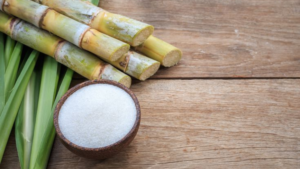SUGAR CANE JUICE SIDE EFFECTS
Sugar cane juice, extracted from the stems of sugar cane plants, has been enjoyed for its refreshing taste and purported health benefits for centuries. While it offers a natural source of sweetness and various nutrients, excessive consumption can lead to several adverse effects on health. This article delves into the potential side effects of sugar cane juice, shedding light on the importance of moderation and awareness.
1. Elevated Blood Sugar Levels

Sugar cane juice is laden with sucrose, a type of sugar that can rapidly elevate blood glucose levels upon consumption. This spike in blood sugar can be particularly concerning for individuals with diabetes or those predisposed to insulin resistance. Regular intake of high-sugar beverages like sugar cane juice may contribute to unstable blood sugar levels, increasing the risk of diabetes complications over time.
2. Weight Management Challenges

The caloric content of sugar cane juice can add up quickly, making it a potential contributor to weight gain and obesity, especially when consumed in excess. Unlike whole fruits, which contain fiber that aids in satiety and regulates blood sugar, sugar cane juice lacks this fiber, leading to a less satisfying drinking experience and potentially overconsumption of calories.
3. Dental Decay and Oral Health Issues

The high sugar content in sugar cane juice poses a significant risk to dental health. Bacteria in the mouth feed on sugars, producing acids that erode tooth enamel and lead to cavities. Frequent consumption of sugary beverages without proper oral hygiene practices can accelerate tooth decay and increase the likelihood of developing gum disease, ultimately compromising oral health.
4. Gastrointestinal Distress

For some individuals, consuming large quantities of sugar cane juice may result in gastrointestinal discomfort such as bloating, gas, or diarrhea. This can be attributed to the high fiber content present in sugar cane, which, when consumed in excess, may overwhelm the digestive system and lead to digestive disturbances. Moderation and mindful consumption can help mitigate these effects.
5. Risk of Foodborne Illness

Improper handling and storage of sugar cane juice can render it susceptible to contamination by harmful bacteria, such as E. coli or Salmonella. Drinking contaminated sugar cane juice can lead to foodborne illnesses characterized by symptoms like nausea, vomiting, diarrhea, and fever. To reduce the risk of contamination, it’s crucial to ensure that sugar cane juice is prepared hygienically and consumed fresh from a trusted source.
6. Allergic Reactions

While rare, some individuals may experience allergic reactions to components present in sugar cane juice. Allergies to sugar cane or its derivatives can manifest as skin rashes, itching, swelling, or even anaphylaxis in severe cases. People with known allergies or sensitivities should exercise caution when consuming sugar cane products and seek medical advice if any adverse reactions occur.

While sugar cane juice offers a natural and refreshing alternative to artificially sweetened beverages, it’s essential to be mindful of its potential side effects. Moderation is key to enjoying sugar cane juice without compromising health. By understanding the risks associated with excessive consumption and practicing responsible consumption habits .

7 . High Sugar Content

Sugar cane juice is naturally high in sugar, which can lead to a rapid spike in blood sugar levels, especially for individuals with diabetes or those prone to insulin resistance.
8 . Weight Gain

Excessive consumption of sugary beverages like sugar cane juice can contribute to weight gain and obesity if not balanced with a healthy diet and exercise.
9 . Dental Issues

The high sugar content in sugar cane juice can promote tooth decay and cavities, particularly if dental hygiene is not maintained after consumption.
